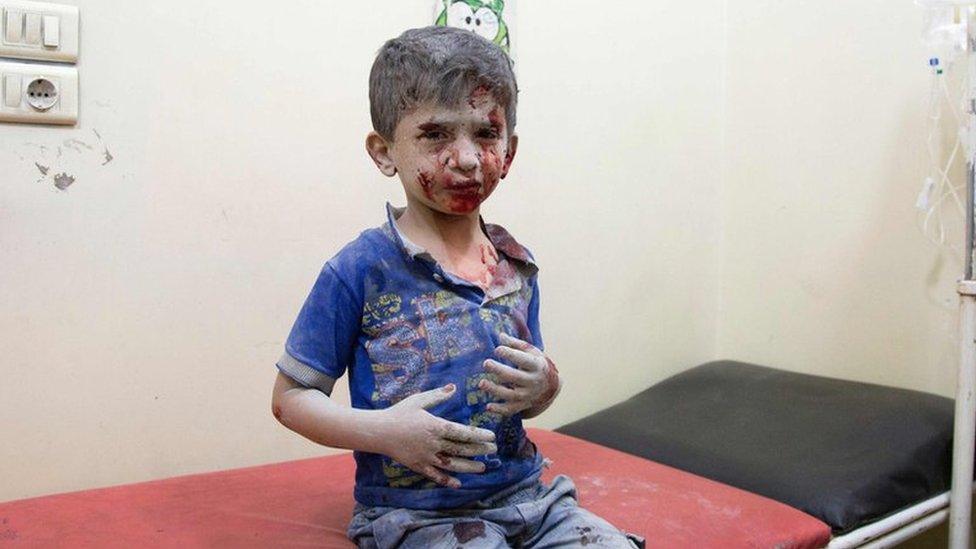From Aleppo to Belfast: A refugee's story
- Published
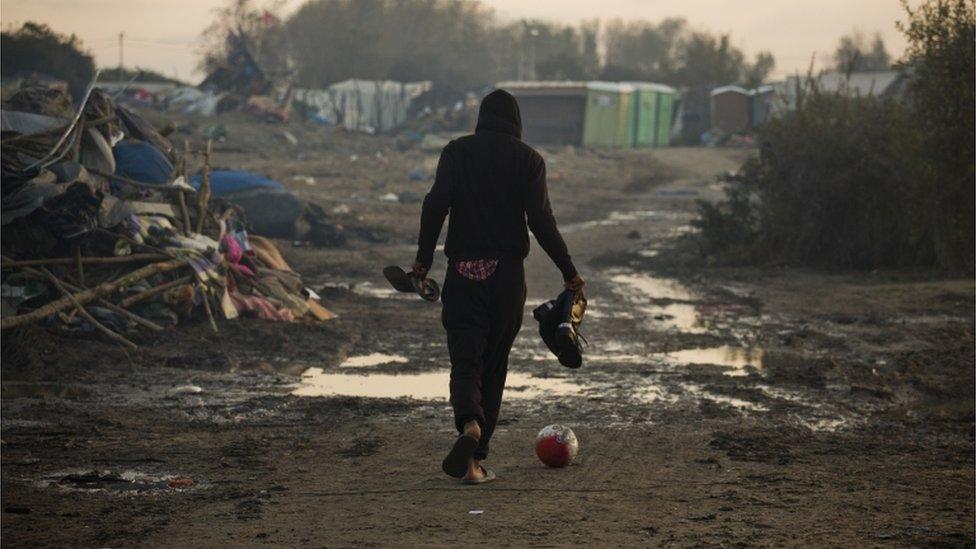
A refugee tells the story of his journey across Europe to Belfast to rebuild his family's lives
Mahmood's surname, Halaby, means "from Aleppo" in Arabic.
Having fled 3,000 miles from Syria, it is the only piece of home he carries with him.
He has not seen his wife or two young sons for 17 months, but this week they are joining him to rebuild their lives in the unfamiliar city of Belfast.
He told me: "If you stay in Syria, you die or you fight - you don't have a choice."
Their former city, Aleppo, was once Syria's largest city and the country's economic hub.
Now it is a crumbling shell of its former self, devastated by half a decade of brutal civil war.
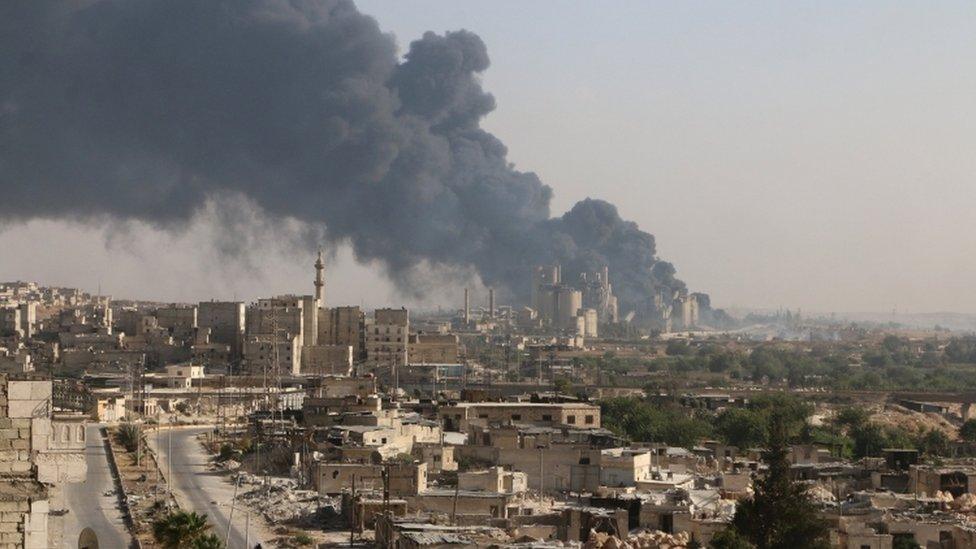
Aleppo has become a key battleground in the Syrian civil war, with thousands fleeing
Mahmood's family lived in an area loyal to President Assad, but as the fighting raged on, it became more difficult to get to his carpentry workshop in a rebel-held zone.
On one of these journeys his 18-year-old nephew, Mohammed, was shot and killed by snipers.
Risking his life
Like many others, the family were forced to stay at home without work for three years, economically crippled as bombs fell around their home.
When asked if he had siblings, Mahmood replied: "I had five brothers and six sisters but if you have big family, you lost a lot of them."
He sold off his machinery and fled with his family to Gaziantep in Turkey, where they stayed in the kitchen of his brother-in-law's small flat.
Mahmood then made the decision to risk his life crossing the Mediterranean to try to establish a life for his family in Europe.
He paid a smuggler £800 for a place on a plastic boat made for 20 people.
Fifty-five refugees were eventually crammed on, including women and children - but Mahmood refused to take that risk with his family.
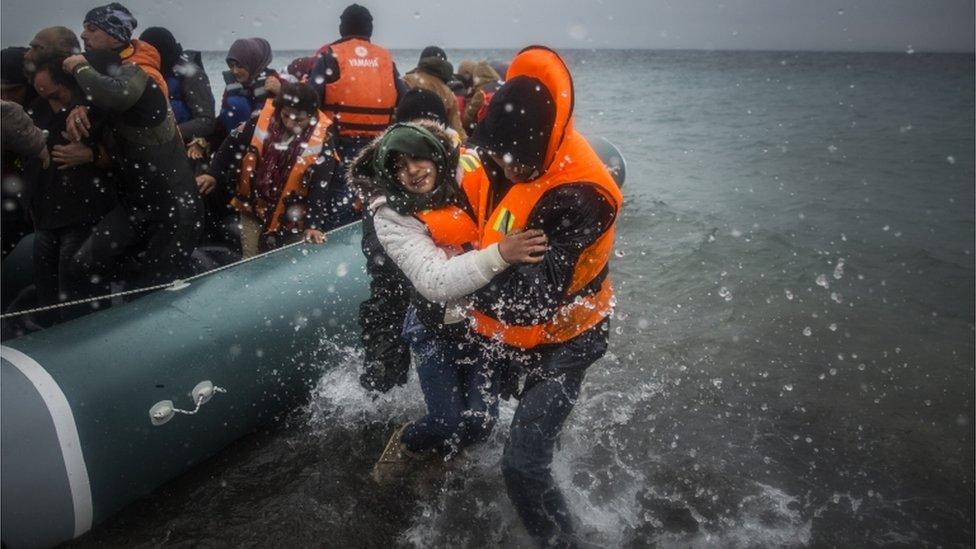
The UN says 2016 has been the deadliest for refugees crossing into Europe
Travelling through Europe, his life was an endless loop of bureaucratic backlogs and walking endlessly with just his phone's GPS for guidance.
On his first attempt to cross into Macedonia from Greece, he and a small group of other refugees walked 30 miles until their feet bled.
"Nobody helped us, but we have a dream," he said. "We lost all our money, we are really tired but we continue on our way."
Like thousands of others, he ended up stranded at Calais.
He lived in a tent for four-and-a-half months, and said he knew many who lost their lives attempting to cross into the UK.
Using his carpentry skills, he helped build the mosque and library facilities there - which have now been demolished.
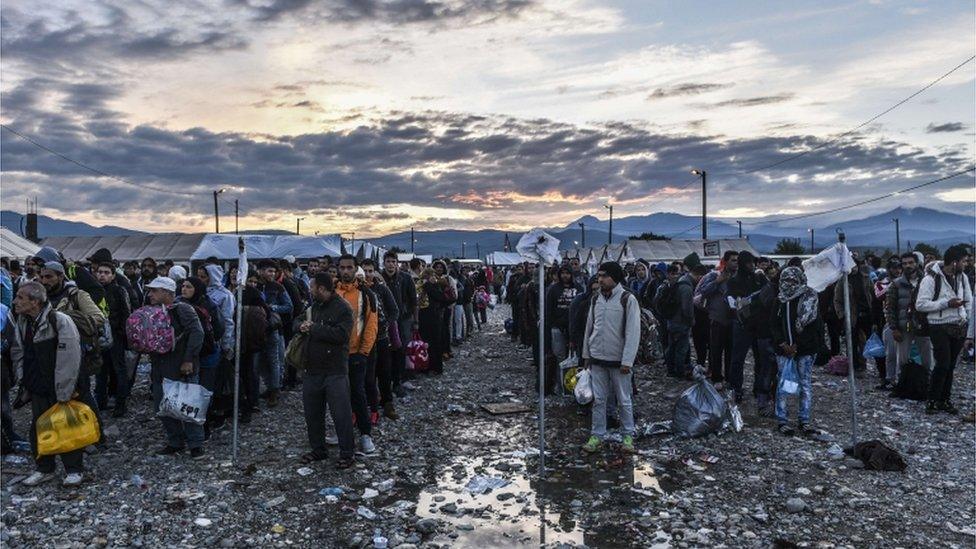
4.8m refugees have fled Syria
Eventually a smuggler helped stow him into a van crossing the channel, where he was crammed in for 18 hours without any food.
"You can't go to bathroom, you can't drink water," he said. "But I knew it was my last chance, if I lost it I couldn't try again."
When asked why he wanted to rebuild his life in the UK, he insisted: "For me all of Europe is same, but for my children I think here is better."
Addressing public apprehension regarding incoming refugees and migrants he said: "In Syria I had everything.
"I had a house, car, a workshop, a farm. We had a very nice life - it's not our dream to come here.
"People think refugees are coming here to take everything free, but I came here because I want to work and make my future."
"I have the power and skills. I just want to focus on getting a job, because I know it's a long time before the war is finished in Syria."
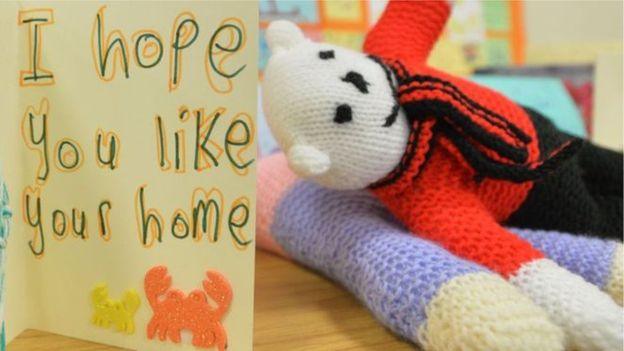
About 300 Syrian refugees now live across Northern Ireland
Since moving to Belfast in December he has been learning English at college and helping with cooking, gardening and fixing bikes at the centre he has been housed in.
He joked about eating fish and chips in Ballymena when helping load shipping containers of aid for the makeshift camps in Syria and Greece he escaped from.
Mahmood said that he sometimes struggles with the Belfast accent, as well as with local preconceptions of him as a Syrian refugee.
'Syrian and very proud'
"Everyone watches the news and think Syrians are dangerous people. If I liked danger I would stay and fight, not come here.
"I sometimes hear people talking about me, saying 'ISIS' when I talk Arabic.
"I'm Syrian and I'm very proud. I'm not going to change that. It's a problem for them, not for me."
He is worried that these comments could affect his children.
"I had a terrible time travelling to find a good future for my boys. If they don't have a problem I am staying. If they do - I'll go to the stars or another planet!"
He is delighted his family's application through the Family Reunification Scheme has been successful.
After 17 months apart and years of living in fear, he hopes they can now begin to build a new life for themselves in Northern Ireland.
- Published27 April 2016
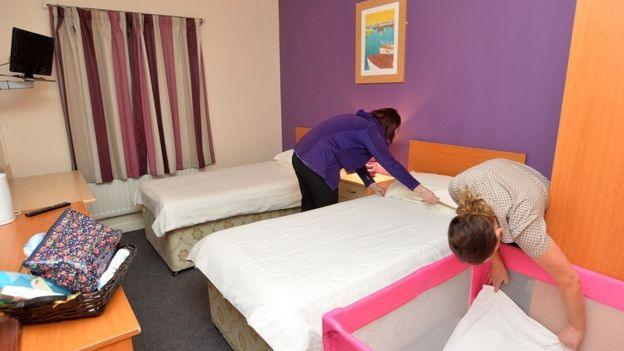
- Published28 June 2016
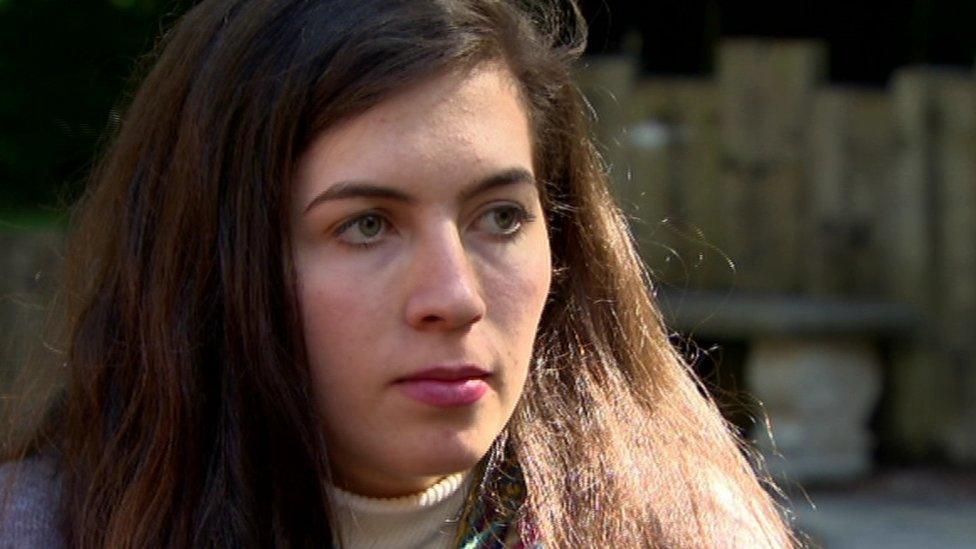
- Published26 September 2016
